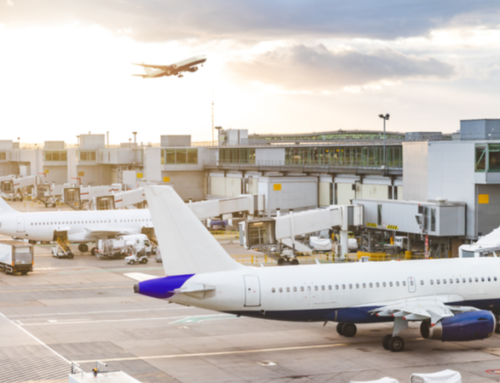At first glance, the terms “travel” and “frugal” might not seem like they belong in the same sentence. If you’re tight with money, how could you possibly justify travel? You should be saving money!
In our family, and in many other families, it’s all about setting priorities. My husband and I feel that travel is important. We want our daughters to see that the world is much bigger than just our own city. We want them to see first-hand that people speak different languages and live differently in other parts of the world.
So to make room for travel in our budget, we are willing to cut back in other areas. For instance, we drive older cars. We eat out a little less. We take fewer “small vacations” locally so we can take a bigger vacation every couple of years.
And when we take a big trip, we research money-saving moves ahead of time. Here are some easy strategies that saved us big bucks. Could they work for you?
Shop for airfare bargains. According to a recent study by the Airlines Reporting Corporation, the ideal time to buy airline tickets—both domestically and internationally—is a mere six weeks before you travel, no earlier, no later. The study found that consumers who buy their tickets around 42 days before their trip save nearly 6 percent over average prices.
However, for a recent family trip to England, I was a little nervous about booking tickets so close to departure. Instead, I plugged our planned itinerary into the flight search engines at Bing Travel and Yapta.com. Their airfare predictors suggest whether it’s time to book your flight or whether they expect fares to drop. We followed the predictors for about a month, then bought our seats at the best price we’d seen all year. Alternatively, we also could have chosen to sign up for sale alerts from a site like airfarewatchdog.com or farecompare.com.
Don’t stay in a hotel. Rent out a condo or apartment instead. For our family’s England trip, we rented a cozy London flat—in a family-friendly neighborhood—for about half the price of a hotel. It gave us a little more space than a hotel room, and we had a little kitchen for making breakfast—another way to cut costs. We found our flat through airbnb.com. For other international locations, HomeAway.com is another option.
I’ve also had friends who’ve had good experiences with HomeExchange.com. Using this site, you can swap homes (at no cost) with another family during the same time period. However, you need to be a bit more flexible about when and where you travel to really make the exchange work well.
Make cheap international cell-phone calls. Unless your cell phone is a tri-band or quad-band phone, it may not work internationally—or it will cost you big bucks to use it. An easier option: Buy a cheap pay-as-you-go cell phone and SIM card in the country to which you’re traveling. We did this in England. We were able to refill minutes as needed, and our plan included a small number of international minutes for emergency calls home. If you don’t mind paying a little more, you can also buy an “unlocked world phone” on Amazon or eBay before you leave the United States. Then you can buy a local SIM card at a cell phone store when you arrive or purchase it ahead of time through sites like or Telestial.com or Cellularabroad.com.
Watch out for credit card fees. Many credit card issuers charge a foreign transaction fee of up to 3 percent every time you use your card outside the United States. That doesn’t sound like much, but those fees pile up quickly. If your card charges foreign transaction fees, do what we did: Apply for a new one that waives these fees. You might even be able to find a card that gives you some extra miles to book your plane tickets.
Happy—and frugal—travels!
Teri Cettina is a mom of two daughters and freelance writer who specializes in personal finance and parenting topics. She blogs at Your Family Money. Follow her on Twitter: @TeriCettina.






